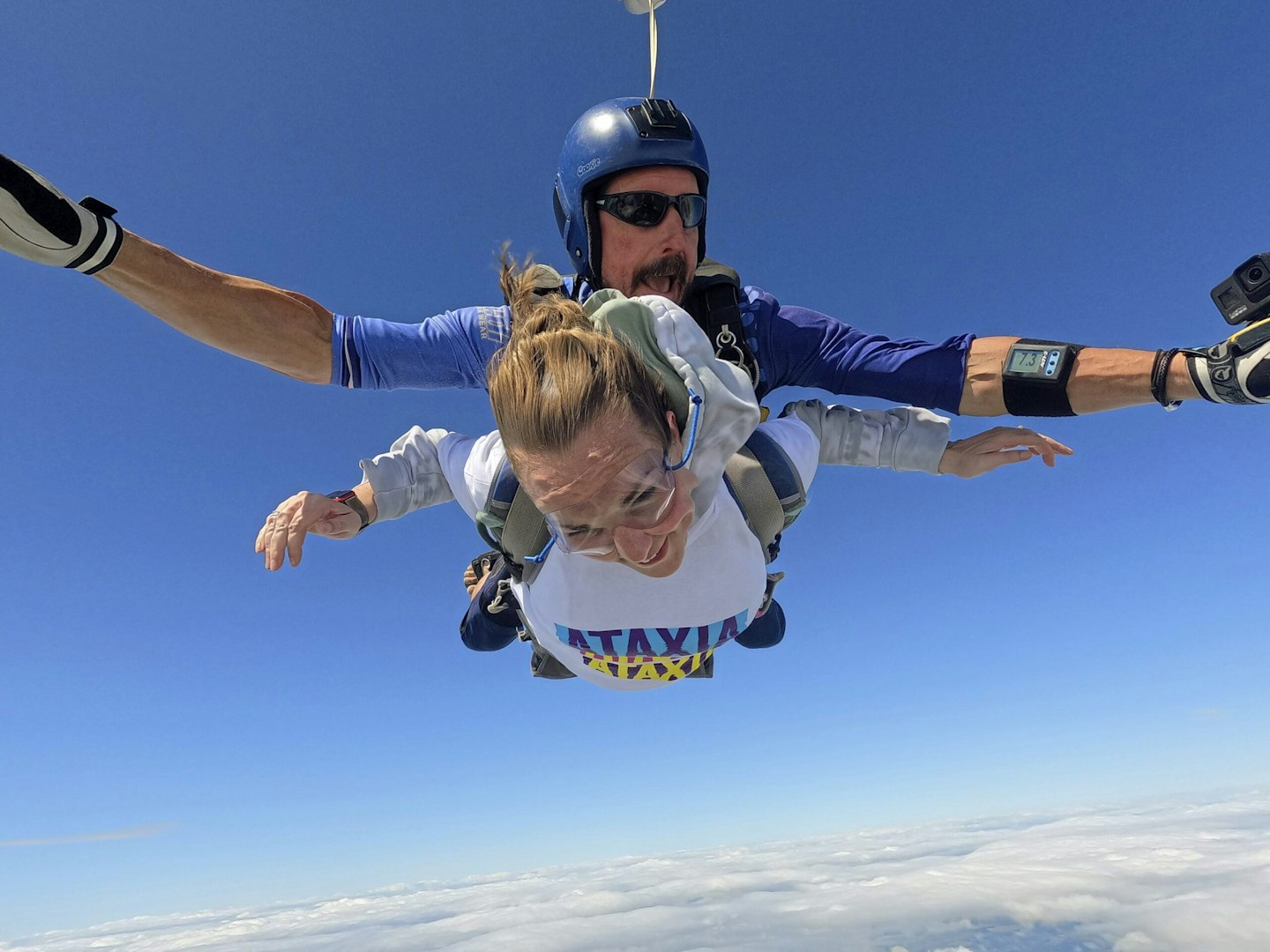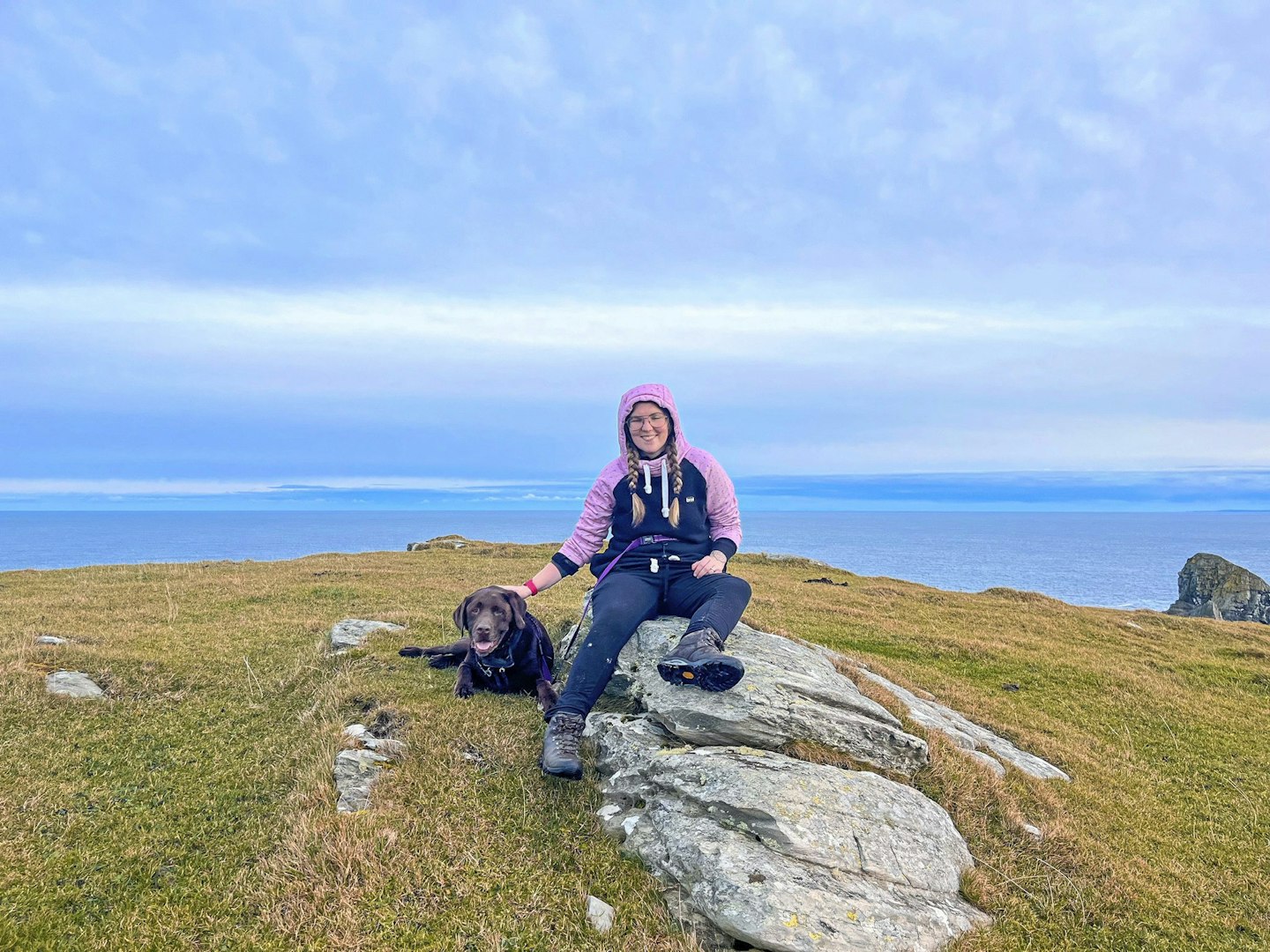Not a drop of alcohol had touched my lips when I began stumbling and slurring my words. By Frankie Hurley-Peet, 38

Stumbling up the stairs, my eyes blurred and my ears rang.
The next thing I knew, I was on the bathroom floor, with my worried dog next to me, licking my nose.
I must have fainted, I thought.
Over the next weeks, I experienced dizziness, as well as a numbness down my left calf, which I put down to bad circulation.
But when the numbness began to spread, I went to see my GP.
‘I can’t feel a thing,’ I said, as she poked and prodded my left side.
‘I don’t think you’ve had a stroke, but I’m sending you to A&E,’ she said.
But despite scans and blood tests, the cause remained a mystery and I was sent home to Radcliffe, Greater Manchester.
Then one day, I was watching TV with my wife when I pointed at the remote control and said: ‘Can you pass the brick?’
‘Brick?’ she asked, confused.
‘Sorry, the remote!’ I replied. ‘I got my words confused!’
We had a giggle about it, but after that I kept getting my words muddled.
Sometimes I couldn’t finish a sentence at all.
But then it got worse.
‘You sound drunk,’ my wife said. ‘Are you OK?’
‘I’m fine,’ I insisted.
But as I stood up, I lost my balance.
‘You look drunk, too,’ she said, concerned.
At work, I barely left my desk for fear of falling over or appearing drunk.
I felt utterly exhausted too. Some weekends, I barely got out of bed.
More tests followed. And finally, I was diagnosed with functional neurological disorder and chronic fatigue syndrome.
'I can't feel a thing'
‘There’s no cure,’ a doctor told me, and that hit me hard.
Why is my body suddenly giving up on me? I wondered.
It didn’t seem fair, when I’d been so active and healthy. I’d completed marathons and triathlons in the past.
Desperate, I turned to ‘Dr Google’ and found articles that suggested cutting carbs could ease my symptoms.
So I stopped eating pasta and bread.
But when I tried introducing low-carb alternatives to things I missed, like cakes and doughnuts, my symptoms flared up again.
Then one day, at an appointment with the nurse at the GP surgery, she said: ‘Have you ever been tested for coeliac disease?’
I shook my head.
That next fortnight, in order to be tested, I had to reintroduce gluten into my diet.
So I tucked into everything I’d been craving — toast, KFC, and my favourite, Maltesers.
Almost immediately, I was off-balance and slurring my words. Yet the test came back negative.
But soon after, I read about something called gluten ataxia.
It was a neurological disorder that led to slurred speech, fatigue and clumsiness, which affected people sensitive to a protein in gluten.
I asked my GP to refer me to a specialist, and tests confirmed that’s what I had.

‘You need to avoid gluten at all costs,’ I was warned.
So I did, and immediately my symptoms eased.
Determined to raise awareness of the condition, I decided to take on a challenge.
‘I’m thinking about doing a skydive,’ I told friends.
They were shocked because I’d always been terrified of heights, a fear that had worsened when I’d been struggling with my balance.
But that had improved so much, that I figured I had nothing to fear and booked the jump.
On the big day, I was strapped to an instructor before getting into the plane.
When we jumped, I marvelled at the world as it zoomed past me. I felt so free and so alive!
Landing back on solid ground, I couldn’t wipe the smile off my face.
Just six months before, I hadn’t even been able to walk to the kitchen without struggling.
I raised £1000 for Ataxia UK too. Without them, I wouldn’t have the life I do now.
These days, I’m strictly gluten-free.

And while I miss my KFC and Maltesers, I feel much better for cutting them out.
I hope my story will encourage others to fight for the diagnosis they deserve and finally get the help they need.
For more info, visit: ataxia.org.uk
